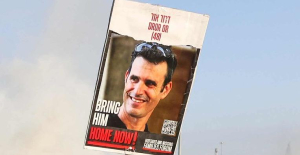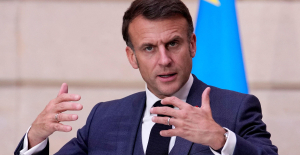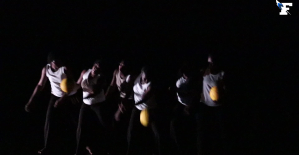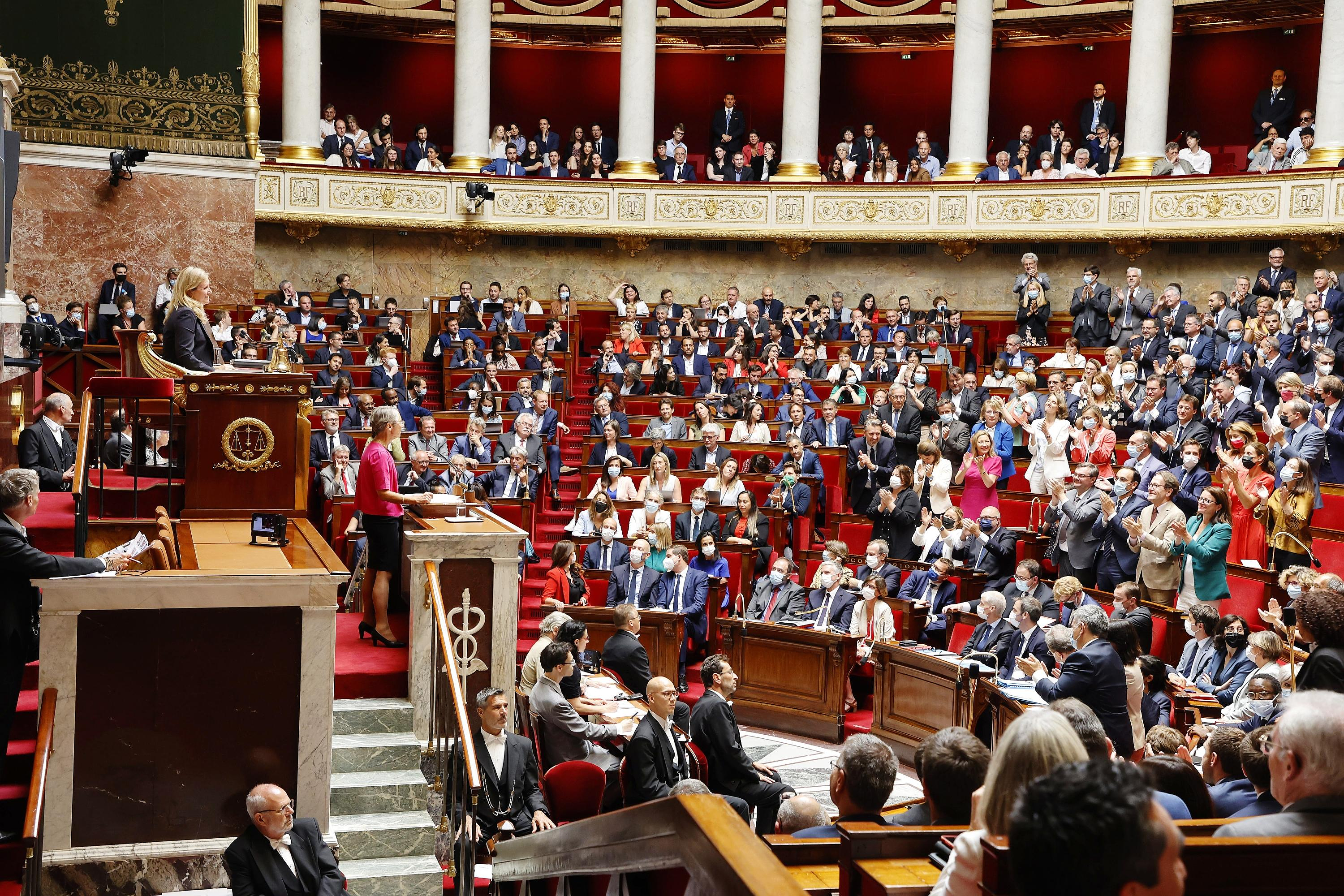At the end of a standoff, punctuated by the threat of a strike by controllers, the four unions representing SNCF and management finally signed an agreement on the end of their careers. Railway workers and drivers will be able to have an “early cessation of activity” thirty months before their retirement with fifteen months worked paid at 100% and fifteen not worked, at 75%. A “lamentable” outcome, deplores Bruno Retailleau, and which arouses criticism from Les Républicains (LR).
“It is an agreement which conscientiously unravels the achievements of the pension reform”, denounces the leader of the LR senators. “Finally,” adds David Lisnard, “the text raising the legal age of departure to 64, supposed to restore the accounts, sees its effects canceled at the SNCF. » A “new illustration that we are not all equal in the face of social rights: monopoly and blackmail prevail in France over fairness, common sense and dialogue”, denounces the LR mayor of Cannes. “It’s sending a very bad signal,” insists Bruno Retailleau. “The one which consists of saying that we can leave, be paid to do nothing in a public company under the authority of the State. » More deeply, Senator Philippe Tabarot questions the exposure of these employees to arduousness. “It existed in the 19th century and the beginning of the 20th century for railway workers. Today, there are other jobs that are just as difficult and do not have these same advantages,” said the elected official from Alpes-Maritimes.
The right points out more broadly the cost of such an agreement. “Can the company afford such a gift? », asks Philippe Tabarot. “It will cost tens of millions of euros: a cost that the SNCF will incur and which will be reflected in the cost of the train. We should not be surprised if, today, train tickets are expensive,” points out Bruno Retailleau. “At a time when we are asking for efforts to clean up public accounts, this agreement pushes the SNCF, and ultimately taxpayers and train users, a little further into the debt deficit,” adds David Lisnard. Furthermore, the right believes, this agreement could lead to a risk of “contagion”. “In public transport, among RATP colleagues, for example, this will create strong case law,” says Senator Philippe Tabarot. This precedent could be expensive where there have never been so few resources, and thus put the large public company in difficulty. »
This agreement, points out the right, also takes place in a very particular context: as the Paris Olympic Games approach, several SNCF and RATP unions have threatened a strike. “So we are buying social peace, it’s a scribble policy,” regrets Bruno Retailleau. The period “obviously has something to do with this agreement”, underlines Philippe Tabarot. The senator also recalls the bill adopted by the Upper House, aimed at limiting strikes in transport during certain periods (holidays, elections and referendums but also, events of "major importance"), and tabled by the boss of the centrist Union, Hervé Marseille. A way to counter “abuses of the right to strike”, concludes Tabarot.

 Who was Dror Or, the Israeli father who died as a hostage in the hands of Hamas?
Who was Dror Or, the Israeli father who died as a hostage in the hands of Hamas? “Pay in cash”: at his trial, Donald Trump faced with an embarrassing recording
“Pay in cash”: at his trial, Donald Trump faced with an embarrassing recording Italy: a grandmother accidentally serves a bottle filled with wine to a baby, he has an alcoholic coma
Italy: a grandmother accidentally serves a bottle filled with wine to a baby, he has an alcoholic coma The mysterious skeletons of Hermann Göring's villa
The mysterious skeletons of Hermann Göring's villa Children born thanks to PMA do not have more cancers than others
Children born thanks to PMA do not have more cancers than others Breast cancer: less than one in two French women follow screening recommendations
Breast cancer: less than one in two French women follow screening recommendations “Dazzling” symptoms, 5,000 deaths per year, non-existent vaccine... What is Lassa fever, a case of which has been identified in Île-de-France?
“Dazzling” symptoms, 5,000 deaths per year, non-existent vaccine... What is Lassa fever, a case of which has been identified in Île-de-France? Sánchez cancels his agenda and considers resigning: "I need to stop and reflect"
Sánchez cancels his agenda and considers resigning: "I need to stop and reflect" After 50 years of existence, “Numbers and Letters” will disappear from the France Télévisions channels
After 50 years of existence, “Numbers and Letters” will disappear from the France Télévisions channels Macron reaffirms his desire not to increase taxes
Macron reaffirms his desire not to increase taxes The expulsion of families of delinquents from HLM reinforced in the future Housing law?
The expulsion of families of delinquents from HLM reinforced in the future Housing law? Health carpooling, this source of savings which arouses the ire of patients and taxis
Health carpooling, this source of savings which arouses the ire of patients and taxis The incredible musical juggling of the Basketteuses de Bamako
The incredible musical juggling of the Basketteuses de Bamako Death of Frank Stella, the most spectacular painter-sculptor
Death of Frank Stella, the most spectacular painter-sculptor Film buff's memories of the Champs-Élysées, by Éric Neuhoff
Film buff's memories of the Champs-Élysées, by Éric Neuhoff Madonna thrills Brazilians on Copacabana beach
Madonna thrills Brazilians on Copacabana beach Omoda 7, another Chinese car that could be manufactured in Spain
Omoda 7, another Chinese car that could be manufactured in Spain BYD chooses CA Auto Bank as financial partner in Spain
BYD chooses CA Auto Bank as financial partner in Spain Tesla and Baidu sign key agreement to boost development of autonomous driving
Tesla and Baidu sign key agreement to boost development of autonomous driving Skoda Kodiaq 2024: a 'beast' plug-in hybrid SUV
Skoda Kodiaq 2024: a 'beast' plug-in hybrid SUV The home mortgage firm rises 3.8% in February and the average interest moderates to 3.33%
The home mortgage firm rises 3.8% in February and the average interest moderates to 3.33% This is how housing prices have changed in Spain in the last decade
This is how housing prices have changed in Spain in the last decade The home mortgage firm drops 10% in January and interest soars to 3.46%
The home mortgage firm drops 10% in January and interest soars to 3.46% The jewel of the Rocío de Nagüeles urbanization: a dream villa in Marbella
The jewel of the Rocío de Nagüeles urbanization: a dream villa in Marbella Facing Jordan Bardella, the popularity match turns to Gabriel Attal’s advantage
Facing Jordan Bardella, the popularity match turns to Gabriel Attal’s advantage Europeans: a senior official on the National Rally list
Europeans: a senior official on the National Rally list Blockade of Sciences Po: the right denounces a “drift”, the government charges the rebels
Blockade of Sciences Po: the right denounces a “drift”, the government charges the rebels Even on a mission for NATO, the Charles-de-Gaulle remains under French control, Lecornu responds to Mélenchon
Even on a mission for NATO, the Charles-de-Gaulle remains under French control, Lecornu responds to Mélenchon These French cities that will boycott the World Cup in Qatar
These French cities that will boycott the World Cup in Qatar Paris 2024 Olympics: Mbappé does not “think much” about the Games
Paris 2024 Olympics: Mbappé does not “think much” about the Games Rugby: a young pillar of the Vienna club, in the 3rd division, died in a car accident
Rugby: a young pillar of the Vienna club, in the 3rd division, died in a car accident Premier League: beaten by Liverpool, Tottenham moves away from the Champions League
Premier League: beaten by Liverpool, Tottenham moves away from the Champions League Bundesliga: Leverkusen easily disposes of Frankfurt, 48th consecutive match without defeat
Bundesliga: Leverkusen easily disposes of Frankfurt, 48th consecutive match without defeat


















